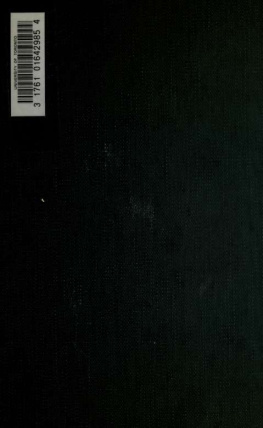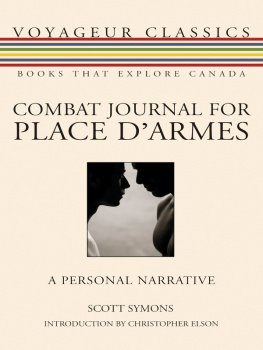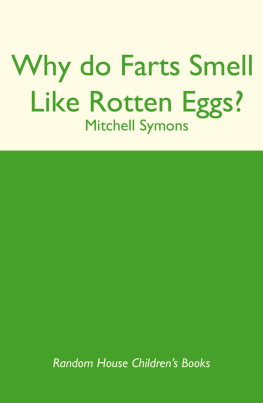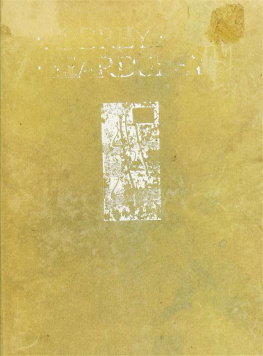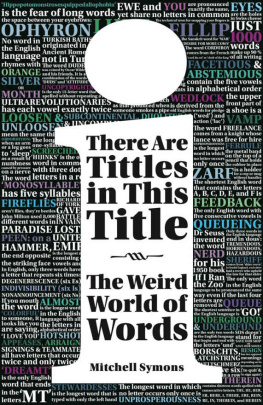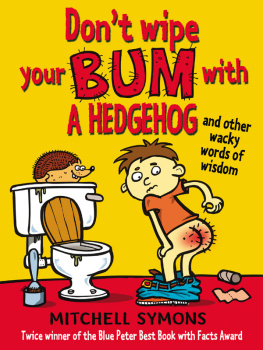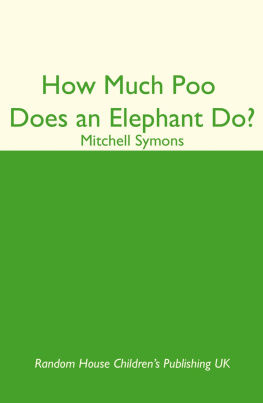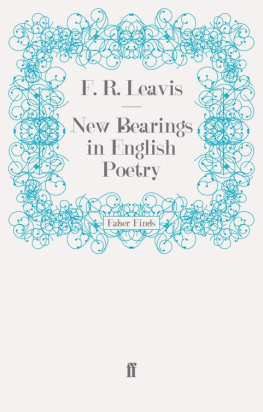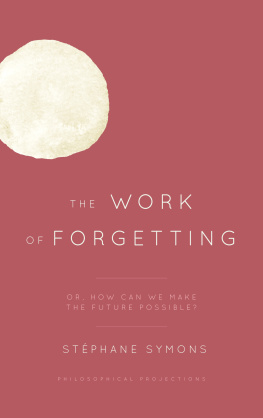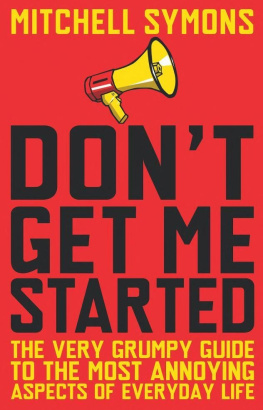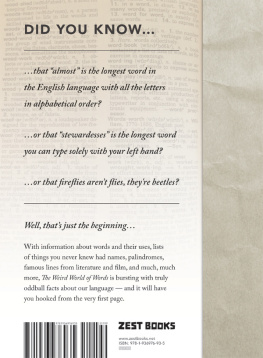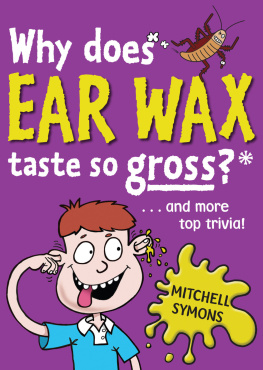Symons - The romantic movement in English poetry
Here you can read online Symons - The romantic movement in English poetry full text of the book (entire story) in english for free. Download pdf and epub, get meaning, cover and reviews about this ebook. year: 1909, publisher: London, Constable, genre: Science. Description of the work, (preface) as well as reviews are available. Best literature library LitArk.com created for fans of good reading and offers a wide selection of genres:
Romance novel
Science fiction
Adventure
Detective
Science
History
Home and family
Prose
Art
Politics
Computer
Non-fiction
Religion
Business
Children
Humor
Choose a favorite category and find really read worthwhile books. Enjoy immersion in the world of imagination, feel the emotions of the characters or learn something new for yourself, make an fascinating discovery.
The romantic movement in English poetry: summary, description and annotation
We offer to read an annotation, description, summary or preface (depends on what the author of the book "The romantic movement in English poetry" wrote himself). If you haven't found the necessary information about the book — write in the comments, we will try to find it.
Symons: author's other books
Who wrote The romantic movement in English poetry? Find out the surname, the name of the author of the book and a list of all author's works by series.
The romantic movement in English poetry — read online for free the complete book (whole text) full work
Below is the text of the book, divided by pages. System saving the place of the last page read, allows you to conveniently read the book "The romantic movement in English poetry" online for free, without having to search again every time where you left off. Put a bookmark, and you can go to the page where you finished reading at any time.
Font size:
Interval:
Bookmark:

This book made available by the Internet Archive.
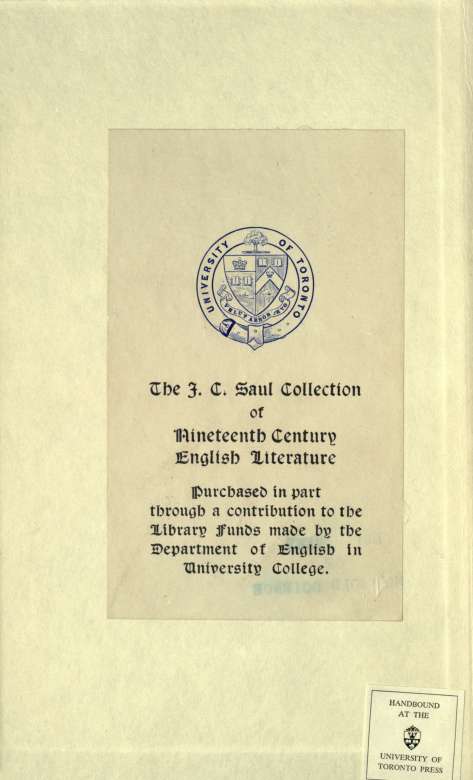


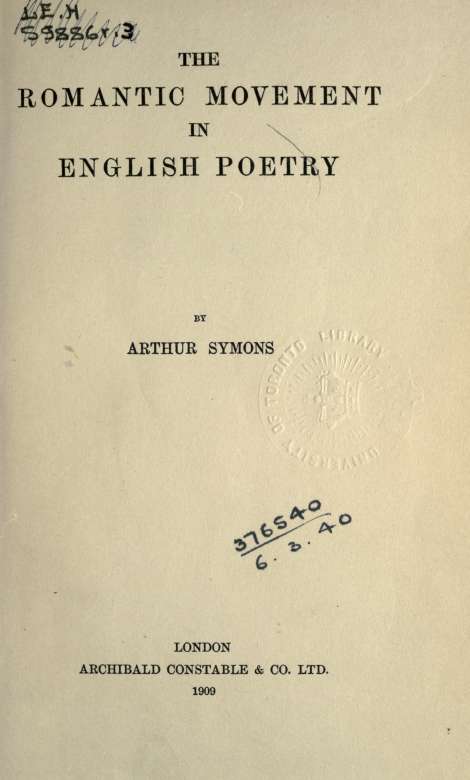
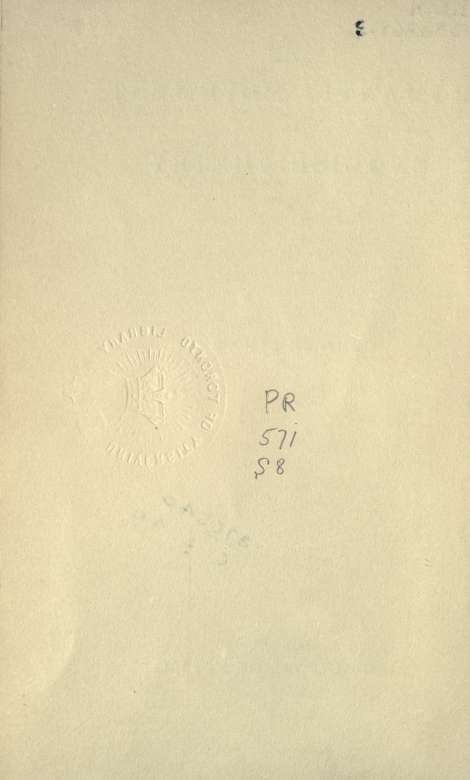
El
THEODORE WATTS-DUNTON BARO LILENGO SIKIMASKERO GUDLO ROMANO GIAMANGERO
PREFACE
IN calling my book the 'Romantic Movement in English Poetry' I do not wish that title to be taken in too exclusive a sense. The word 'romantic,' I think, defines more clearly than any other what we find most characteristic in the renewal of poetry after its long banishment. The great poets of every age but the eighteenth have been romantic: what are Chaucer, Shakespeare, and Coleridge if not romantic? But in using the convenient word ' movement ' I wish it to be understood that it is not meant in the usual historical sense, or with the defi-niteness with which we say, for example, the Tractarian or the Agrarian Movement. There a definite aim sets many minds working together, not in mere comradeship. No such thing ever happened in the creation of literature. It is each one of these poets whom I want to study, finding out, if I can, what he was in himself, what he made of himself in his work, and by what means, impulses, and instincts, The poet, the poem, it is with these only that I am concerned.
And, again for convenience, I have set limits to my plan. The year 1800 is taken as a sort of centre; or shall I say a barrier, which shuts out every writer of verse who was born after that year, and lets through every one who survived from the eighteenth into the nineteenth century. My plan allows me no choice between good or bad writers inverse: I give each his due consideration, his due space, of a few lines or of many pages. And I have given each in chronological order, with the dates of his birth and death and of the first edition of his published volumes of verse. I have consulted no histories of literature, nor essays about it, except for the bare facts of a man's life or work; but I have tried to get at one thing only: the poet in his poetry, his poetry in the poet; it is the same thing.
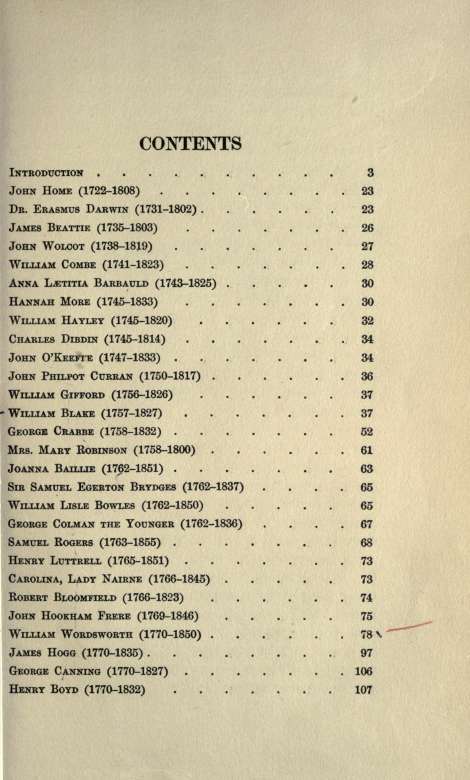
SIR WALTER SCOTT (1771-1832) 108
JAMES MONTGOMERY (1771-1854) 119
MRS. TIGHE (1772-1810) 121
HENRY FRANCIS GARY (1772-1844) 122
SAMUEL TAYLOR COLERIDGE (1772-1834) ..... 123
ROBERT SOUTHEY (1774r-1843) 148
ROBERT TANNAHILL (1774-1810) 161
CHARLES LAMB (1775-1834) 161
CHARLES LLOYD (1775-1839) 167
JOSEPH BLANCO WHITE (1775-1840) 169
THOMAS DERMODY (1775-1802) 170
DR. JOHN LEYDEN (1775-1811) 171
WALTER SAVAGE LANDOR (1775-1864) 172
JAMES AND HORATIO SMITH (1775-1839 ; 1779-1849) .. 189
THOMAS CAMPBELL (1775-1844) 191
THOMAS MOORE (1779-1852) 200
ROBERT EYRES LANDOR (1781-1869) 207
EDWARD, BARON THURLOW (1781-1829) 209
EBENEZER ELLIOTT (1781-1849) 209
WILLIAM NICHOLSON (1782-1849) 213
ANN AND JANE TAYLOR (1782-1866; 1783-1824)...213
REGINALD HEBER (1783-1826) 215
JAMES SHERIDAN KNOWLES (1784-1862) 216
BERNARD BARTON (1784-1849) 217
WILLIAM TENNANT (1784-1848) 217
JAMES HENRY LEIGH HUNT (1784-1859) .... 218 ALLAN CUNNINGHAM (1784-1842)......227
REV. CHARLES STRONG (1785-1864) 228
HENRY KIRKE WHITE (1785-1806) 228
THOMAS LOVE PEACOCK (1785-1866) 230
JOHN WILSON (1785-1841) .231
SIR AUBREY DE VERB (1786-1846) 232
CAROLINE ANNE BOWLES SOUTHEY (1786-1854)... 233
GEORGE BEATTIE (1786-1823) 234
MARY RUSSELL MITFORD (1787-1855) 234
BRYAN WALLER PROCTER : BARRY CORNWALL (1787-1874) . 236 GEORGE GORDON, LORD BYRON (1788-1824)....239
RICHARD HARRIS BARHAM (1788-1845) 263
REV. HENRY HART MILMAN (1791-1868) 265
REV. CHARLES WOLFE (1791-1823) 266
PERCY BYSSHE SHELLEY (1792-1822)......268
REV. JOHN KEBLE (1792-1866) 286
DR. WILLIAM MAGINN (1793-1842)......286
JOHN CLARE (1793-1864) 288
FELICIA DOROTHEA HEMANS (1793-1835) 293
JOHN GIBSON LOCKHART (1794-1854) 295
THOMAS CARLYLE (1795-1881) 297
KEATS (1795-1821) 298
GEORGE DARLEY (1795-1846).......315
JEREMIAH JOSEPH CALLANAN (1795-1829) .... 318
SIR THOMAS NOON TALFOURD (1795-1854) .... 319
JOHN HAMILTON REYNOLDS (1796-1852) 320
DAVID HARTLEY COLERIDGE (1796-1849) 321
WILLIAM MOTHERWELL (1797-1835) ..... 323
SAMUEL LOVER (1797-1868) 324
ROBERT POLLOK (1798-1827) 325
DAVID MACBETH MOIR (1798-1851) 325
WILLIAM THOM (1798-1848) 326
THOMAS HOOD (1799-1845) 328
THE MINORS 333
NOTE 340
INDEX 341
'Ages are all equal; but genius is always above the age.' BLAKE.
THE ROMANTIC MOVEMENT IN ENGLISH POETRY
INTRODUCTION
COLERIDGE defined prose as 'words in good order/ poetry as 'the best words in the best order/ But there is no reason why prose should not be the best words in the best order. Rhythm alone, and rhythm of a regular and recurrent kind only, distinguishes poetry from prose. It was contended by an Oxford professor of poetry, Mr. W. J. Courthope, that the lines of Marlowe,
' Was this the face that launched a thousand ships, And burned the topless towers of Ilium?'
are of a different substance from the substance of prose, and that it is certain that Marlowe ' could only have ventured on the sublime audacity that a face launched ships and burned towers by escaping from the limits of ordinary language, and conveying his metaphor through the harmonious and ecstatic movement of rhythm and metre.' To this it may be answered that any writer of elevated prose, Milton or Ruskin, could have said in prose precisely what Marlowe said in verse, and could have made fine prose of it: the imagination, the idea, a fine kind of form, would have been there; only one thing would have been lacking, the very finest kind of form, the form of verse. It would have been poetical substance, not poetry; the rhythm transforms it into poetry, and nothing but the rhythm.
When Wordsworth declares, in the Preface to the ( Lyrical Ballads/ that' there neither is nor can be any essential differ
4 ROMANTIC MOVEMENT IN ENGLISH POETRY
ence between the language of prose and metrical composition/ he is perfectly right, and Coleridge is certainly wrong in saying, ' I write in metre because I am about to use a language different from that of prose.' Both forget that what must be assumed is poetical substance, and that, given poetical substance, the actual language of the prose and of the verse may very well be identical. When Coleridge says that he would have preferred ' Alice Fell! in prose, he is, very justly, criticising the substance of that 'metrical composition/ which is wholly unpoetical: there, and not in the language, is the distinction between its essential prose and poetry.
There is in prose, whenever it is good prose, but not necessarily inherent in it, a certain rhythm, much laxer than that of verse, not, indeed, bound by formal laws at all; but, in its essence, like the intonation which distinguishes one voice from another in the repetition of a single phrase. Prose, in its rudimentary stage, is merely recorded speech; but, as one may talk in prose all one's life without knowing it, so it may be that the conscious form of verse (speech, that is, reduced to rules, and regarded as partly of the nature of music) was of earlier origin. A certain stage of civilisation must have been reached before it could have occurred to any one that ordinary speech was worth being preserved. Verse is more easily remembered than prose, because of its recurrent beat, and whatever men thought worth remembering, either for its beauty (as a song or hymn) or for its utility (as a law), would naturally be put into verse. Verse may well have anticipated the existence of writing, but hardly prose. The writing-down of verse, to this day, is almost a materialization of it; but prose exists only as a written document.
Font size:
Interval:
Bookmark:
Similar books «The romantic movement in English poetry»
Look at similar books to The romantic movement in English poetry. We have selected literature similar in name and meaning in the hope of providing readers with more options to find new, interesting, not yet read works.
Discussion, reviews of the book The romantic movement in English poetry and just readers' own opinions. Leave your comments, write what you think about the work, its meaning or the main characters. Specify what exactly you liked and what you didn't like, and why you think so.

